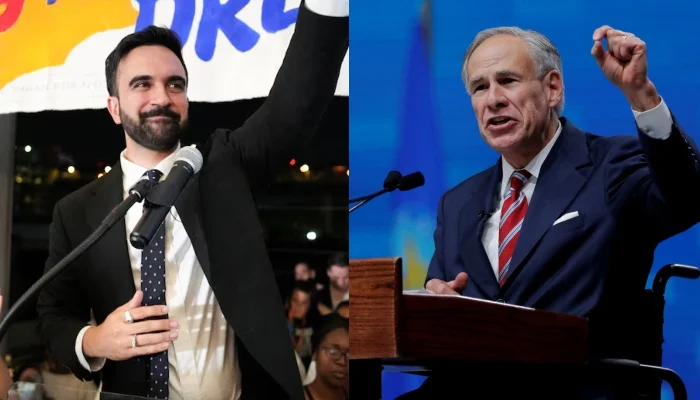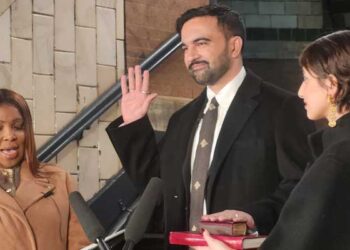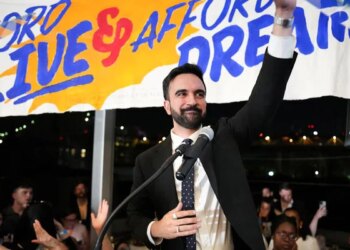Select Language:
Zohran Mamdani, running as a Democratic socialist, has made history by winning the New York City mayoral race with a commanding lead. This victory signifies a new chapter in the city’s political landscape and has garnered nationwide attention. Mamdani is now the first Muslim and Indian-American to hold the mayor’s office in New York.
Just a day prior to Mamdani’s victory, Texas Governor Greg Abbott made a provocative statement, declaring he would implement a “100% tariff” on anyone relocating from New York City to Texas. Abbott shared this on X (formerly Twitter), stating: “After the polls close tomorrow night, I will impose a 100% tariff on anyone moving to Texas from NYC.” While seemingly a political stunt, this comment sparked serious legal and ethical debates, as the U.S. Constitution prohibits states from levying tariffs on individuals, who have the constitutional right to move freely across state lines.
Former President Donald Trump, who endorsed ex-Governor Andrew Cuomo, sharply criticized Mamdani, labeling him a “communist.” Trump warned that Mamdani’s election could turn New York City into a “total economic and social disaster.”
Despite these aggressive attacks, Mamdani’s campaign—centered on issues like affordability, free childcare, free public transportation, and rent controls—resonated strongly with voters. Following the results, celebrations erupted across New York, and Abbott’s “100% tariff” remark was widely ridiculed on social media as unconstitutional, provocative, and even humorous.
Political analysts see Mamdani’s victory as part of a larger movement emerging in American urban politics—driven by middle-class families, renters, and younger voters leaning toward socialist policies and economic justice initiatives.
Meanwhile, in Texas, Abbott’s statement has become a source of memes and satirical commentary. One social media user quipped: “Since Mamdani has already won, Abbott might as well slap a tariff on New York ideas too.” This humor underscores a deeper cultural and ideological divide shaping the 2025 elections, revealing a contest that’s about more than politics—it’s a battle over America’s values and future direction.






